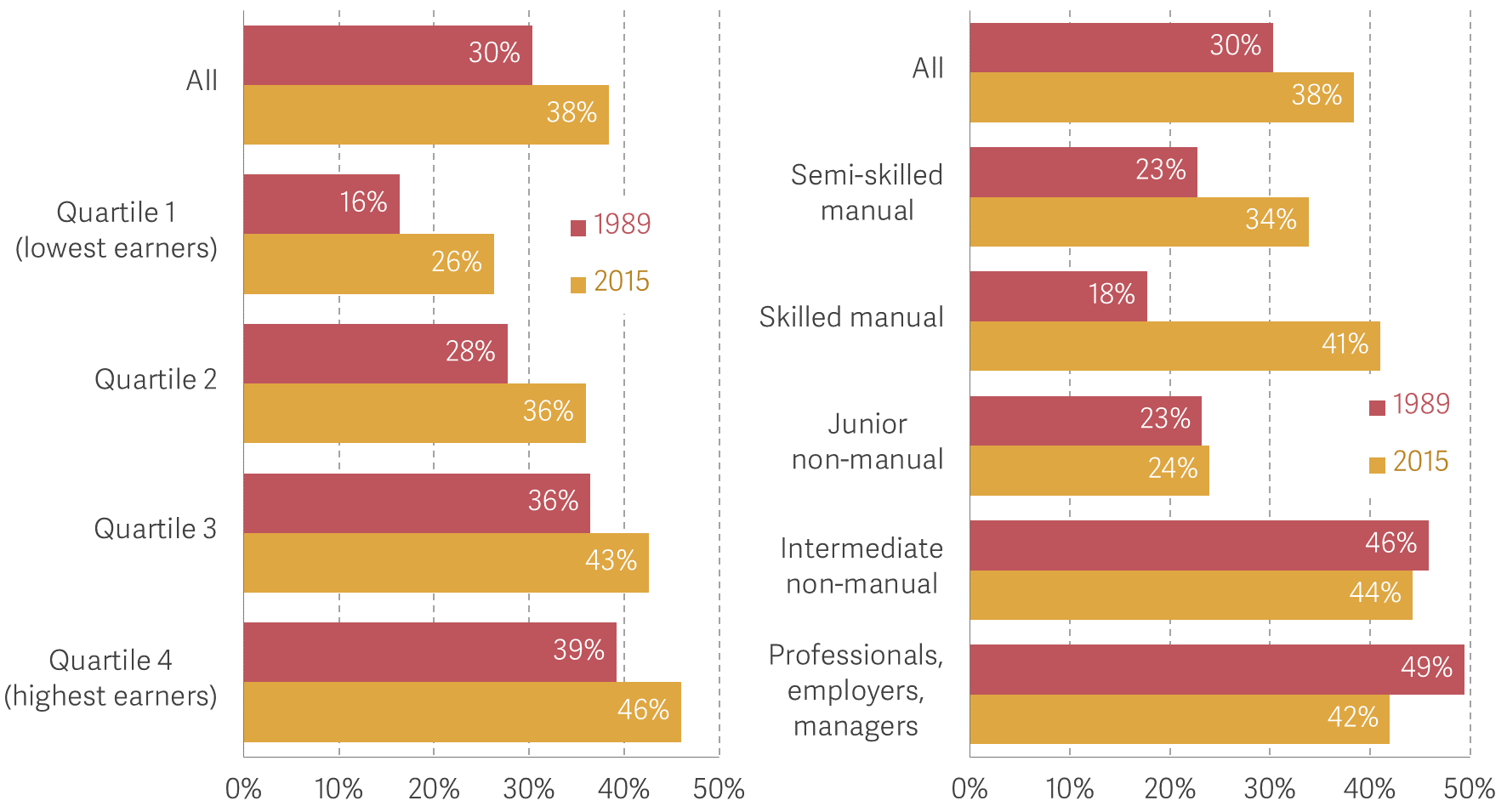Most businesses expect to raise pay, as workers more stressed than ever
Firms expect to increase wages as recruitment pressures grow

Your support helps us to tell the story
From reproductive rights to climate change to Big Tech, The Independent is on the ground when the story is developing. Whether it's investigating the financials of Elon Musk's pro-Trump PAC or producing our latest documentary, 'The A Word', which shines a light on the American women fighting for reproductive rights, we know how important it is to parse out the facts from the messaging.
At such a critical moment in US history, we need reporters on the ground. Your donation allows us to keep sending journalists to speak to both sides of the story.
The Independent is trusted by Americans across the entire political spectrum. And unlike many other quality news outlets, we choose not to lock Americans out of our reporting and analysis with paywalls. We believe quality journalism should be available to everyone, paid for by those who can afford it.
Your support makes all the difference.Over two thirds of businesses expect to raise pay in the year ahead, as competition for staff heats up.
Sixty-eight per cent of firms are planning to boost pay packets, nearly a quarter by an above-inflation increase, according to business lobby group the Confederation of British Industry (CBI).
Its survey in August gathered responses from 422 companies, including some of the largest employers.
Concerns grow over labour shortages and broader challenges in recruitment. Employers are increasingly fearful that despite the imminent closure of the furlough scheme, which was supporting 1.6 million workers at the end of July, they still will not be able to fill vacancies which have topped a million for the first time.
Nearly nine out of 10 companies, 87 per cent, expect to hire permanent staff this year, according to the CBI survey carried out with recruitment firm Pertemps Network Group. This high level of competition for finding employees might squeeze out smaller firms or those who suffered most from pandemic-triggered lockdowns.
“Pay intentions are rising across the board as firms reopen and the economy recovers,” says Matthew Percival, director of skills and inclusion at the CBI. “This could be challenging though, for those businesses that remained shut during lockdowns and need to recoup losses and pay off Covid debts.
“Pay rises need to be underpinned by productivity or risk being passed on to customers through higher prices. The government using the upcoming Budget to boost business investment will be key to achieving this and preventing rising employment costs damaging labour-market competitiveness.”
Higher prices, labour shortages and supply-chain strains have dominated headlines in recent months, threatening the pace of economic recovery from the pandemic.
The Bank of England will have to confront these concerns and address the rapid rate of price increases at a meeting on Thursday. At present, the rate of inflation – the pace of price rises – is running above the central bank’s target of two per cent. Consumer prices rose 3.2 per cent in the 12 months to August, up from two per cent in July, marking the largest rise on record.
Some economists now believe the BoE should halt its efforts to boost the economy through quantitative easing, as it may be fuelling price rises too strongly. Few expect a shift towards higher interest rates before next year at the earliest.
While pay is set to increase for many, potentially mitigating the impact of prices rises, a study of the past 30 years shows that workers are more stressed than ever.

Economic think tank the Resolution Foundation, funded by the Nuffield Foundation, found more employees report that work is always or often stressful. The proportion has risen from 30 per cent in 1989 to 38 per cent in 2015, the latest year for which data is available.
More computers, first noted at scale in the 1990s, appears to have played a significant part in the rise in stress workers feel, the study suggests. According to data gathered in 2012, 64 per cent of employees who used computers said they worked under a “great deal of tension” compared with 48 per cent of those that did not use computers. This trend persisted even when taking account of different kinds of work.
Stress was once more strongly correlated with higher earners but that’s less apparent in more recent years, with low-paid workers being increasingly stressed.
As the economy adjusts after restrictions, employers appear to be trying to rethink how to approach office life. Over three quarters of employers, 76 per cent, expect to allow hybrid working, with employees working from home at least some of the time, the CBI’s survey found.
Employers should use this moment of adjustment to consider broader changes that could help address the problem of stress at work, according to the Nuffield Foundation.
“Improving working conditions for employees could increase job satisfaction and reduce levels of work-related stress,” says Alex Beer, welfare programme head at the Nuffield Foundation. “In addition to improving employees’ physical and mental health, better conditions might also help to increase productivity.
“As many employers consider changes to their workplace policies in response to the Covid-19 pandemic, this research demonstrates why efforts to support workers’ wellbeing should be a priority.”
Join our commenting forum
Join thought-provoking conversations, follow other Independent readers and see their replies
Comments